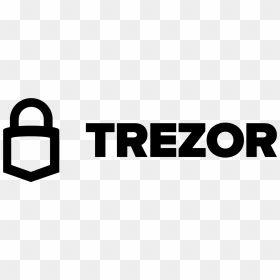Okay, so check this out—I’ve been messing around with crypto wallets for years now, and lemme tell ya, hardware wallets are the real deal. Seriously, nothing beats having your private keys locked away offline, away from all those pesky hackers lurking on the internet. My gut feeling has always leaned toward cold storage solutions because, well, hot wallets just feel too risky for larger holdings.
At first, I thought all hardware wallets were kinda the same, just fancy USB sticks with some crypto magic. But after fiddling with different brands, the trezor wallet kept popping up as my go-to. Something about its open-source nature and transparent security really gives me peace of mind. Plus, it’s not just about locking down assets; it’s about trust that you can verify yourself.
Here’s the thing. When you’re dealing with crypto, trust is everything, and you can’t just rely on promises. The Trezor’s open design means you can actually audit the firmware and hardware. That’s huge for anyone who’s serious about keeping their stash safe. I mean, most wallets are black boxes, but Trezor feels like it’s waving a flag saying, “Look, no secrets here.”
Wow! That was a total game changer for me. Initially, I thought the convenience of mobile wallets was unbeatable, but then I realized that convenience sometimes means vulnerability. The cold storage approach Trezor offers feels like locking your valuables in a safe instead of leaving ’em on the kitchen table.
Of course, it’s not all sunshine and rainbows. There are quirks, and I’m not 100% sure if Trezor is perfect—nothing ever is. But for me, it strikes a solid balance between usability and hardcore security.
Now, let’s talk about why cold storage is such a big deal. You see, keeping crypto offline means hackers can’t easily swipe your coins—even if your computer is compromised by malware or keyloggers. That’s why people who hold serious amounts tend to swear by hardware wallets like Trezor.
And honestly, the peace of mind I get from knowing my private keys never touch the internet is priceless. It’s like having a fortress around your crypto. On one hand, it might seem like overkill for casual users, though actually, even small holders benefit from that extra layer.
Something that bugs me, though, is the occasional user error—losing seed phrases or forgetting PINs. It’s very very important to understand that hardware wallets only protect you if you handle them responsibly. The Trezor wallet makes this easier with clear setup steps and recovery methods, but it still boils down to user care.
Hmm… I remember the first time I set up my Trezor. It felt a bit overwhelming, but the interface guided me through generating and safely storing my recovery seed phrase. That moment made me realize this isn’t just some gadget; it’s a security mindset shift. You’re basically becoming your own bank.
Check this out—

—this little device packs a punch. The build quality is solid, tactile, and the screen is clear enough to verify transaction details before approving them. That’s critical because it means you’re not blindly trusting your computer or mobile app.
Also, the open-source software angle cannot be overstated. For users who prefer transparency and community verification, Trezor stands apart from many competitors who keep their code proprietary. This openness means vulnerabilities can be spotted and patched faster, which is a big plus in the fast-evolving crypto world.
Here’s a quick tangent—some folks worry that having an open-source wallet might make it easier for hackers, but that’s a misunderstanding. In security, transparency often leads to stronger defenses, not weaker ones. When lots of eyes scrutinize the code, bugs get found quicker.
Another thing I noticed is the flexibility. The Trezor wallet supports a wide range of coins and tokens. So, if you’re diversifying your portfolio, you don’t have to juggle multiple devices or wallets. For me, that convenience combined with security was a big selling point.
But wait—there’s also the human factor. I’ve seen friends accidentally expose their seed phrases or fall for phishing scams. The hardware wallet itself can’t protect against dumb mistakes. This is where education and awareness come in, and Trezor’s community resources help a lot.
Wow! I’m rambling a bit, but this stuff is close to my heart. I’m biased, sure, because I’ve personally lost coins before and that sting still lingers. The Trezor wallet helped me regain confidence in managing my assets safely, step by step.
Of course, alternatives exist, but the combination of user-friendly design, open-source transparency, and cold storage security is what keeps me coming back. It’s not about being flashy; it’s about solid, no-nonsense protection.
Something I’m still pondering is how hardware wallets will evolve as crypto adoption grows. Will they stay as physical devices, or merge more with mobile tech? For now, I trust the physical isolation Trezor provides, but who knows? The landscape’s always shifting.
Oh, and by the way, if you’re considering dipping your toes into hardware wallets, I’d definitely recommend checking out the trezor wallet. Their site walks you through everything without the jargon overload.
Before I let this trail off, here’s a little nugget—hardware wallets like Trezor don’t just protect your crypto; they protect your peace of mind in a world that’s anything but certain. And for me, that’s worth way more than the sticker price on the device.
Common Questions About Trezor and Cold Storage
Is the Trezor wallet truly secure against hackers?
Yes, because your private keys never leave the device, and all signing happens offline. This drastically reduces attack vectors compared to software wallets. But remember, physical security and seed phrase management are vital too.
What happens if I lose my Trezor device?
Your recovery seed phrase lets you restore your crypto on a new device. That’s why backing up your seed securely is very very important. Without it, your funds could be lost forever.
Can I use Trezor for all cryptocurrencies?
Trezor supports a broad range of coins and tokens, including Bitcoin, Ethereum, and many altcoins. However, it may not cover every single token out there, so check compatibility before diving in.
